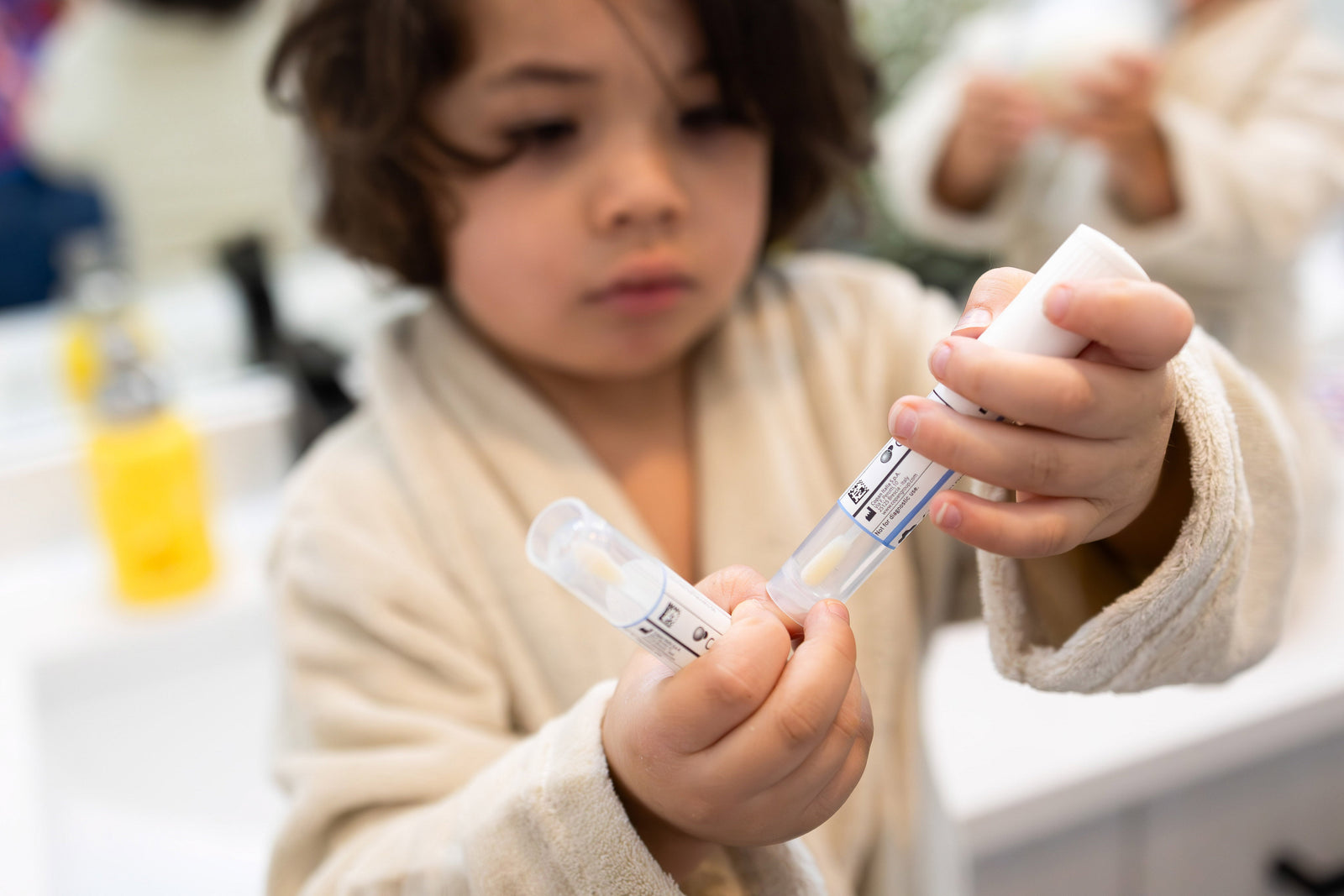Your Cart is Empty
Continue shoppingWorld Microbiome Day: Benefits of Stool Testing for Babies and Kids
Medically Reviewed by May Zhu, RDN | Published June 27, 2024
share this article

World Microbiome Day is an opportunity to celebrate and raise awareness about the importance of the microbiome, the vast collection of microorganisms living in and on our bodies. For babies and infants, the microbiome plays a crucial role in their overall health and development. One valuable tool for understanding and monitoring this microbiome is stool testing. In this blog, we’ll explore the benefits of stool testing for babies and infants.
What is the Microbiome and Why is it Important for Kids' Health?
The microbiome consists of trillions of microorganisms, including bacteria, viruses, and fungi, that inhabit various parts of the body, primarily the gut. These microorganisms are essential for digestion, immune function, and overall health. In babies and infants, the microbiome is particularly important as it influences their growth, development, and long-term health.
The Role of Stool Testing
Stool testing is a non-invasive method of analyzing the composition and health of the gut microbiome. By examining a baby's stool sample, healthcare providers can gain insights into their digestive health, identify potential issues, and make informed decisions about their care.
Benefits of Stool Testing for Babies and Infants
-
Early Detection of Digestive Issues: Stool testing can help identify digestive problems early, such as lactose intolerance, malabsorption, or infections. Early detection allows for prompt intervention, preventing potential complications and promoting healthy development.
-
Monitoring Gut Health: Regular stool testing can provide a detailed picture of an infant's and kid's gut health, helping to monitor changes and identify any imbalances in the gut microbiome. Maintaining a balanced gut microbiome is essential for a healthy immune system and can reduce the risk of allergies and autoimmune diseases.
-
Guiding Nutritional Decisions: Understanding the composition of a baby's or kid's gut microbiome can guide nutritional choices, making they receive the right nutrients to support a healthy microbiome. For instance, a study in The American Journal of Clinical Nutrition found that breastfeeding promotes the growth of beneficial bacteria such as bifidobacteria, which are crucial for immune development and overall health [3]. Stool testing can confirm the presence of these beneficial bacteria and help tailor feeding practices accordingly.
-
Preventing and Managing Infections: The gut microbiome plays a critical role in protecting against infections. By identifying harmful bacteria or pathogens through stool testing, healthcare providers can take preventive measures or prescribe appropriate treatments.
-
Assessing Probiotic and Prebiotic Use: Probiotics and prebiotics are often recommended to support gut health in infants and kids. Stool testing can help assess the effectiveness of these supplements by monitoring changes in the gut microbiome. Clinical studies in Pediatrics showed that consuming probiotics can reduce the incidence of gastrointestinal infections and promote a healthy balance of gut bacteria in both infants and kids [5].
- Buy Now
Join the
Happy Gut Club
Daily reads to help your little ones lead happier and healthier lives.
Statistics on Kids' Gut Health
- Research in Gut Microbes indicated that infants with a diverse gut microbiome are less likely to develop asthma, allergies, and autoimmune diseases [7].
- Breastfeeding can reduce the risk of gastrointestinal infections by 64%, highlighting the importance of developing a balanced gut health in infants to create foundational lifelong health as they grow [8].
Summary
Stool testing is a valuable tool for monitoring and maintaining the gut health of babies and infants. By providing early detection of digestive issues, guiding nutritional decisions, and preventing infections, stool testing can significantly contribute to the overall health and well-being of little ones. Understanding and caring for the microbiome from an early age sets the foundation for a healthier future.

Author
May Zhu, RDN
Trending

Why Parents Are Choosing Prebiotics Over Stool Softeners for Kids
read now
Inc. Names Begin Health to Its 2025 List of the Fastest-Growing Private Companies in the Midwest
read now
Oxalates and Kids' Digestion: How High-Oxalate Foods Contribute to Constipation and Gut Discomfort
read now






